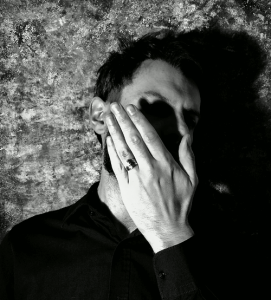 Richard Knox established Gizeh Records in Leeds at the dawn of the new century, and the label has grown organically from strength to strength since then, building a reputation for bringing adventurously expansive music to the world. Mr Olivetti spoke to him about the origins of the label, the art of collaboration, and how he keeps Gizeh and his musical project A-Sun Amissa going in uncertain times.
Richard Knox established Gizeh Records in Leeds at the dawn of the new century, and the label has grown organically from strength to strength since then, building a reputation for bringing adventurously expansive music to the world. Mr Olivetti spoke to him about the origins of the label, the art of collaboration, and how he keeps Gizeh and his musical project A-Sun Amissa going in uncertain times.
What came first, your musical outlets or Gizeh?
Music came first, although not by long. My first project, Glissando, was born in 2000 and the first Gizeh release was 2001- – that was the début Glissando CD. I never had any intention of running a record label in the beginning, it was more a case of, “oh we have some songs that we quite like, what are our options?” We wanted to do a release of some kind and play a bunch of shows, and putting a label name on the CD was simply a way of making it look way more professional than it actually was.
I didn’t realise it back then, but that was also when the DIY ethics took root. It was just a matter of trying to make something happen. So we recorded these songs to four-track cassette in my bedroom, made these CDs, did the artwork and started to figure out how to put on shows. I had no connections with anyone back then, no one to learn from or ask advice, so it was just a try and fail situation all the time… learn a bit, do it again.
Around that time I met a few other people in Leeds who were in a similar boat and into similar music, and thought it would be cool to put this pretend label name on some more music — then, of course, it wasn’t pretend anymore. I started to realise that there was so much good music around that didn’t have a home or a platform or anyone helping out, so Gizeh basically grew from there, about as organically as you can get I suppose. Small step after small step, meeting people, playing shows, working out in which direction the next small step should be.Year on year it just got that little bit more serious; I started to put in more time and I got distribution, worked out how to get reviews on so on. All these years later and it still exists, which is pretty cool and certainly not something I ever thought would happen. I’m never looking too far ahead and I don’t take this for granted for one minute. I basically know the plan for the next year, and beyond that there isn’t a long-term plan or anything. This business is on a knife-edge all the time and you are constantly re-evaluating everything as the models for putting out a record shift around. It’s part of the fun in many ways and it’s forever a challenge. As of the end of 2018 we’re up to GZH86, so that’s pretty good going.
The recent releases that I have enjoyed have a very cinematic feel. Is there a particular musical aesthetic to which Gizeh is drawn?
Not really. The scope of releases is pretty wide and is simply a reflection of my own musical tastes. That being said, I’m generally drawn towards the darker side of things. That could be music, art or writing.One of my main fears with the label has always been getting pigeon-holed into some awful genre or scene. I have absolutely zero interest in that. It comes at a cost and I’m fully aware of that. It forces people to get out of their comfort zone and do some work, because they are never sure if they are going to enjoy the next release. That means we sell less stuff, because a lot of people are really lazy. On the other hand, I feel like it’s very rewarding for people who do take a real interest, because it’s a matter of trust and trusting in my taste in music. People who are into the label obviously don’t like every single release, but in this landscape we’re now in of artists being able to do so much themselves and there being so much music out there, I feel like the curation part of the label job is very important.
A lot of people feel like there is no place for labels these days, but I still see them as being a shit-filter and a way of bypassing a lot of the noise. There’s so much terrible music around, everywhere you look, but if say Constellation or Thrill Jockey are telling me they are putting out a new record, then I’ll damn well take a listen.
Why the name Gizeh?
It’s connected to the pyramids in Egypt and I always liked the way it looked, and that fact it’s an odd word that people don’t know how to pronounce. That’s probably not done me any favours over the years though! There’s no great mystery about it — we needed a label name all those years ago and this one stuck.Having started in Leeds and now being based in Manchester, do you feel that working out of a cool, provincial town, well out of the clutches of the south-east of England, gives you and by extension the label more freedom?
I have no idea to be honest. I think wherever you live, if you are trying to do something creative, it presents its own unique challenges. Both Leeds and Manchester are big enough cities to be able to put on shows and get people interested, but there’s still an enormous amount of other stuff happening and it can be hard.
One benefit of the bigger cities is the fact that you can meet other people who are doing interesting stuff reasonably easily, which obviously opens up options for collaboration and friendships. However, as far as the label and making music are concerned, I’ve purposefully built those things in a way where I can do them anywhere, which is great. The freedom that brings is quite liberating and self sufficiency is extremely important to me.
The artists on the label seem to come from all corners of the world. How do your paths cross?
Generally in a pretty natural way — either already established friendships or friends of friends. I’ve been touring for about thirteen years now, so you inevitably meet people on the road, playing on the same festival or bill or whatever. I can probably count on one hand the amount of records I’ve released from demos I’ve been sent. That’s not to say I haven’t been sent a lot of good stuff over the years, it’s just that the personal connection outweighs that every time. I’m also not releasing tons of records, so there isn’t a lot of room for taking risks on people you don’t know personally.The collaboration aspect is important, and I’ve always said that the people involved in the music are as important as the music itself. Life’s too short to be dealing with assholes on a daily basis, especially assholes with big egos.
I noticed that some of the releases are in collaboration with other labels like Consouling Sounds. Do these labels share your vision and how does it work practically?
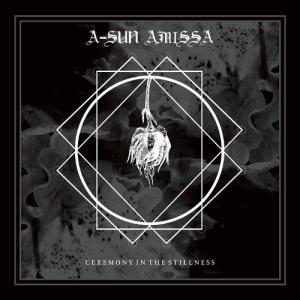 It’s the same process as working with an artist, to be honest. You have to be sure you are on the same page and use your intuition as much as possible. Consouling Sounds for instance — Colin from Amenra hooked me up with those guys and we hit it off immediately. They were super-friendly and respectful from day one and from that we have grown a really close friendship. I completely trust those guys and they are a pleasure to work with. We share a very similar vision, work ethic and artistic standard and it feels like we’re on this journey together in many ways.
It’s the same process as working with an artist, to be honest. You have to be sure you are on the same page and use your intuition as much as possible. Consouling Sounds for instance — Colin from Amenra hooked me up with those guys and we hit it off immediately. They were super-friendly and respectful from day one and from that we have grown a really close friendship. I completely trust those guys and they are a pleasure to work with. We share a very similar vision, work ethic and artistic standard and it feels like we’re on this journey together in many ways.
How did the collaboration with Aidan Baker come about and do you have any more plans to work with him?
A-Sun Amissa played a show with Aidan many years ago, and we got on really well and kept in touch. The relationship just grew from there and it’s always a pleasure to work with him. He’s very prolific, easy to work with and generally up for doing things, so it’s quite easy to find projects to work on together. We always have some kind of plan brewing somewhere, so I think we’ll be working together plenty more in the future.
The artwork for the releases is clearly an important element. Do you collaborate with the artists on the sleeves?
The artwork is very important and the process varies. It’s one of the hardest aspects for me, because I want the artist to realise their vision for the project in its fullest form; but on the other hand, there’s a certain level of quality to be maintained — both musically and in the artwork. I basically get involved when I feel I can offer something to the process, maybe in tiny tweaks to the layout here and there, or sometimes it’s more serious and I’m never, ever comfortable with that. It’s very difficult to tell the artist that it’s gonna need some work. However, if the Gizeh name is going on the sleeve then I feel like I need to be honest, and if there is an issue we always resolve it somehow.I’ve worked in some shape or form on most of the releases, either doing the whole artwork or just putting things together. There’s a release we’re about to announce for April and the artwork came fully formed in its entirety, layout and everything… that’s always a nice feeling!
Are there any particular elements of the artwork, for example the typography, that you particularly enjoy and do these extend to outside of the label?
Outside of the label I’m constantly working on artwork of various kinds: relief printing, screen-printing or digital work, so I’m switched onto it most of the time. My eye is drawn to particular things, but it’s quite difficult to pin that down. It’s the same with any art form — sometimes it just hits the spot and it’s difficult to explain why. Again, it’s usually the darker side of art that grabs my attention most often.
Has concentrating on the label and A-Sun Amissa put your other musical projects in the shade, or do you still find time for Glissando and the like?
I’m certainly trying to channel my energies into less musical projects and concentrate on A-Sun Amissa these days. The palette for that project is broad enough to allow me to write structured pieces and be experimental, so I’m not short of ideas and inspiration. It’s also built in a way that is flexible for touring and so on. I can play solo or put a band together for the road, depending on the conditions. Again, it feeds into the sustainable idea and it’s flexible, so under almost any circumstance things can happen and I can keep things moving without relying on anyone in particular.There are obvious downsides to doing everything yourself, but the biggest upside is that if something needs to happen you can make it happen, and on your own terms. With the label, A-Sun Amissa and the art / printing work I do there is always enough to keep me really busy all the time, and I feel like that’s more than enough for the time being. However, I recently started a new project called The Eternal Return Arkestra — it’s really in its infancy and I’m slowly finding my feet with how to move it forward. The idea is to build up a catalogue of ever-evolving songs that people collaborate on and keep adding new parts to.
It’s digitally based and meant to be outside all the constraints of labels, touring, press etc — it exists in its own little world. Basically, I invite artists to submit a very basic piece of music that isn’t too finished or consisting of too many elements, an embryo of sorts. That gets uploaded to the website and then other artists are free to add their ideas on top of that piece. Once the new version comes back, the old one is taken down and replaced, and these songs can develop and grow very organically with no time constraints. It will be interesting to see how it grows. It’s purposefully designed to not be too time-consuming, but an interesting project that people can keep coming back to.
How do the songs come to fruition? Is the group a democracy or do the songs evolve from one person’s vision?
These days A-Sun Amissa is just my project, so there’s no democracy involved at all. I’ll generally spend a few months working on ideas and demos without too much of a final goal in mind, just sit in the studio with all the gear and make music — see if there’s anything in there and see what comes out. After a while, I usually start to get a feeling of certain ideas working together or a particular atmosphere to the pieces, and then it starts to form into something more concrete. At that point I’ll start to look at who else I want to get involved and who I feel could enhance the songs. I usually give people a deadline, as I’ll already have a timeframe for recording and mixing at that point, then it’s a matter of just doing the work for a couple of months to get it all wrapped up.There is a wealth of smaller labels out there now, many releasing very interesting things. Do you feel part of any sort of community and if so, with whom do you feel the most solidarity?
That’s an interesting question because, as I said earlier, I don’t feel like Gizeh is part of any genre or scene; but at the same time there is certainly a collection of small labels ploughing a similar path, and most of us are in contact with each other or at the very least respectful from a distance. I don’t feel any sense of competition, which is a nice thing. Most of these labels are putting out excellent music and just trying to survive selling a couple of hundred copies, so there’s definitely solidarity in encouraging each other to keep going. I already mentioned three in Consouling Sounds, Constellation and Thrill Jockey but to add a few more: Sige, Wolves and Vibrancy, Miasmah, Robotic Empire, Profound Lore and Frederic D Oberland’s new label Nahal has kicked off with some really nice releases as well.
Vinyl seems to be making a comeback, but very few of your releases are on that format. Is this a matter of choice of practicality? Will you be embracing the return of cassettes?
Fourteen of our last twenty releases have had a vinyl edition, which is pretty good going, I’d say. It’s no longer making a comeback, in my opinion, as it’s hit the ceiling. Vinyl growth has slowed right down, and I predict it will now just plateau along. There was certainly an upturn in interest though, which has been nice, but it’s no saviour. Whenever people mention that “vinyl sales have exploded”, I always remember a quote from a record store owner who said, “well sure, they have doubled, I used to sell one copy of this album per year.. and now I sell two!” The starting point was so low to begin with, you know.Each release we do is considered carefully in terms of format and how many copies we press, and there are a lot of factors at play, from financial to touring and everything in between. The main concern is how do we realise the artistic vision while ensuring we don’t go bankrupt. Every release is like that. We introduced the Dark Peak Series to be able to release small editions on CD in handmade packaging. This keeps the cost down for releases we know won’t sell a lot, allows us to support the artist, is reasonably risk-free and keeps the quality high. I screen-print by hand every sleeve and glue and package them up; it’s pretty labour intensive, but totally worth it.
We don’t have a lot of money in the label bank account, but what we do have is a serious work ethic and that gets us through most things. Vinyl can be a risk, because the unit price is so high, so you have to be careful in the amount of copies you press. We have worldwide distribution, so there needs to be enough to go around — but if many of those get returned, then we have a problem. That’s why we encourage artists to tour as much as they can, it makes a big difference. As for cassettes… in a word, no.
Do you work the label’s activities around the band or vice versa?
Everything is intertwined pretty deeply. I try and plan things in a way to make sure everything is moving along at the same time, which isn’t so easy sometimes. Generally my week consists of Monday being a label day, Tuesday-Thursday working on A-Sun Amissa and Friday is a printing day. Weekends are usually cramming in things I haven’t finished during the week, band rehearsals, watching football and trying to find a little bit of time out. I’m usually working twelve hour days — it’s the only way to get things done; but I like it that way, I’m not one for being still.Are there any artists out there who are lighting your fire that we should know about and is there anybody left who you would like to see on the label.
There are always artists I hear and think I’d love to work with them, but the reality is we are a small label and there are a million small labels around. It’s always a right place at the right time situation. At the end of the day, it’s got to benefit the artist and be the right step for them on the path they want to take. At the moment, I’m lucky enough to have no shortage of great music that people are sending to me, so we’re well set for 2019. As for fire lighting… a couple of recent discoveries for me have been Senyawa and Kathryn Joseph. Both highly recommended.
In all seriousness, in the current climate, is it possible to stay afloat financially with the label and touring the group?
It is, but barely. You have to be very smart and be willing to work really hard for not much money. I mean, no-one really has to do this — it’s a choice, but the rewards are usually worth it. I’m happy spending my days doing this stuff. It’s certainly getting harder though, and one thing is for sure: if Brexit goes as badly as it looks like going, then that will definitely finish off a lot of small bands and labels.From our side, 50% of our customers are in Europe, we press our vinyl in the Czech Republic and CDs in Poland, and we tour Europe twice a year. If there is any increase in price in any of these areas we are in big trouble as the margins we operate on are so fine. If we need work permits to travel, paying tax on merch, having paperwork for every single bit of gear you carry in the van, import tax, postage cost rises… etc etc. It’s a total nightmare, I can tell you. We could probably do a whole interview just based on that!
What does the future hold for Gizeh?
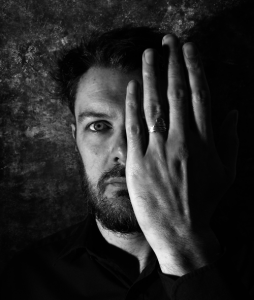 2019 is pretty much mapped out now.
2019 is pretty much mapped out now.
I’ve been developing a personal schedule/system/structure over the past year that I’m now trying to implement on a yearly basis. Because I work on so many projects — music, artwork, running the label and other things — I need my house fully in order, so I’ve been trying to divide up the year into segments and give each thing its time and place. This also factors in financial needs and helps make the whole self-employed thing a little more stable.
So, like February and October are marked off for A-Sun Amissa touring, the other guys in the band then know to mark that in the diary and can organise around it. I’m in a flow now where I want to release one A-Sun Amissa album per year — so I have a production schedule which gives me a writing and recording deadline, and that’s the record I’m working on right now. That allows me to plan releases for Gizeh in the months I’m not on tour, and I’ll plug into the other gaps time to work on art, tour booking, a holiday, etc. At the end of the day, people are entrusting me with their art and I need to make sure that art gets the attention it deserves, alongside fulfilling my own work. It’s working pretty good so far.We’re yet to announce any releases for 2019, but the first three are in the can for March, April and May. After that, I just have to see what lands when from the stuff I’ve been promised — but all being well, we should have eight releases this year. We have two editions of Gizehfest; one in Eeklo, Belgium on 6 February and one in Manchester on 9 March 2019, so those should be fun. I’ll just continue to take it one year at a time, do the work that’s in front of me and try and keep the whole thing moving forward as best I can.
Thank you for your time answering these questions — and I hope that A-Sun Amissa will visit Bristol next time the group tours too.
Richard’s website and upcoming A-Sun Amissa tour dates can be found here . Visit Gizeh’s website to find out more about the label and the forthcoming Gizehfests in Belgium and the UK.
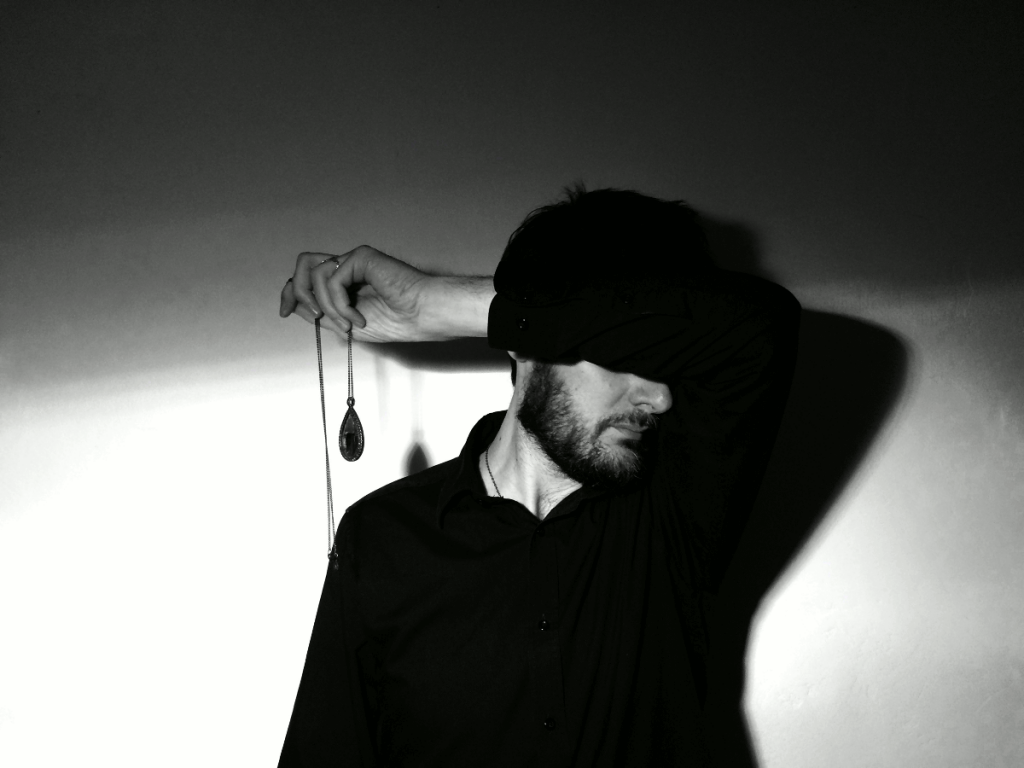

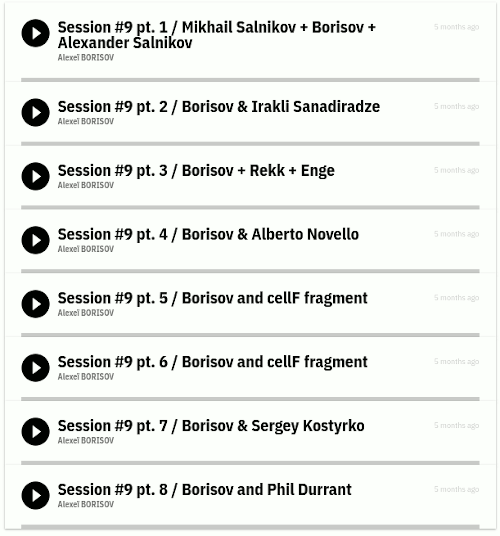


One thought on “I’m not one for being still – Richard Knox of Gizeh Records and A-Sun Amissa interviewed”
wonderful interview, i love the releases i really do, i still think that what you do is excellent and i think theres always going to be a need even a requirement for small independant labels … keep up the wonderful work